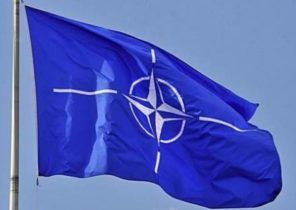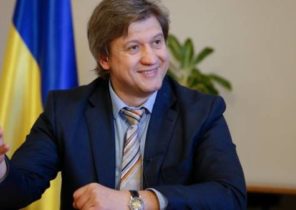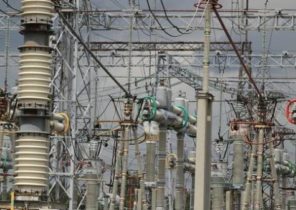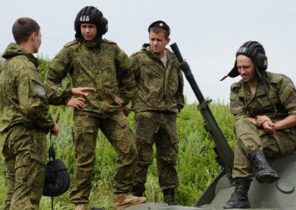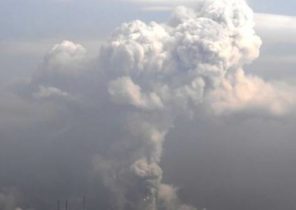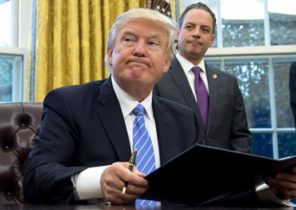
The chiming clock of the Spassky tower of the Kremlin in the new year’s eve marked the approach of not only the centennial of the October revolution in Russia, but also the beginning of the final, two-year cycle ongoing gas war of Russia against Ukraine. But unlike the two previous crises in 2005/2006 and 2009/2010, when it was about the economic strangulation through price increases and the transition to non-transparent schemes of gas supplies, Gazprom’s current tactic is to completely eliminate Ukraine as a transit country for the European energy market. This is evidenced, in addition to all other indicators, numerous publications and presentations that emerged late last year that clearly indicates the number “zero” in the column of “transit via Ukraine” in the forecasts deliveries of Russian gas to Europe until 2020. We are talking about the construction of two bypass pipelines — “Northern stream — 2” and “Turkish stream”, the total power which must fully overlap, and even ideal for the Russian monopoly case, exceed the current transit through Ukraine (82.2 billion cubic meters, an increase of 23% compared to 2015). In order to tickle the nerves of the Europeans like and do not understand all the dangers, Gazprom in breach of its contractual obligations was periodically decreased to a critical level, the pressure at the entrance to the Ukrainian gas transportation system, forcing the company to maintain the performance of transit networks at the expense of own resources. The fact that pump gas through the tube only when it is filled with the process gas under a certain pressure, and that the transit contract between Ukraine and Russia is the supplier’s responsibility, as well as ensuring transit is, unfortunately, the responsibility of Gazprom’s contracts with European consumers who are long-term and was long before the revolution of dignity. However, in the case of pressure drop at the exit of the system due to the fault of Gazprom, the Russian side is traditionally pointing to Kiev, accusing Ukraine of selection nezakonchennyj volumes of gas. Fortunately, the current level of relations between Ukraine and the EU is that any charges flatly refuted by objective data from gas metering stations, to which the European operators have access to. That is why Brussels is well known and is played with a transit, which in December amounted to 8.4 billion cubic meters, which is 25% more than in December 2015.
Nevertheless, Gazprom continues to pursue a policy aimed at total monopolization of transit. The main element of this policy is the project “Northern stream-2”, which is intended to double the capacity of two strands of “Nord stream” has already been laid in the North sea from Russia to Germany. For the construction of this pipe in the Swiss Canton of Zug (where I lived and RosUkrEnergo) created 2 of the Nord Stream AG shareholders of which, according to the Kremlin’s plan, were to be Gazprom and several European energy companies — OMV, BASF, Engie,Shell, Uniper. At the time of creating 100% of shares of “Nord Stream AG 2” belonged to the Dutch daughter of A. Miller, “Gazprom Gerosgaz Holdings B. V.”. Now, Gazprom has made a new year’s gift — purchased from himself, that is, Gazprom Gerosgaz Holdings B. V. 50% stake in Nord Stream AG 2, as planned. But with the participation of the European partners nezaladilos. The fact that against the “Nord stream -2” sharply criticized Poland. As emphasized in my article in the Financial Times, the Polish Minister for European Affairs Szymanski, pointing to the obvious political nature of the project, “Nord stream-2” is a “Trojan horse that can destabilize the economy and poison the political relations within the EU”. In Poland’s opinion, “the EU can not simultaneously support Ukraine and impose sanctions against Russia, calling for an energy Union within the EU and to cooperate with Gazprom on the “Nord stream-2”. Indeed, this is pure absurdity. Poland’s position was supported by the Czech Republic, Estonia, Croatia, Hungary, Lithuania, Latvia, Romania and Slovakia, and a number of other EU members. Taking into account the position of these European companies that had previously expressed interest in participating in the project, has refused these plans. So at the moment, Gazprom is left alone with himself in search of another 10 billion euros on the project. But, alas, it does not mean that the Kremlin has suspended efforts. The infamous decision of the European Commission to allow Gazprom to use the pipeline OPAL, which connects the entry point of the “Nord stream” in Germany, the Czech Republic, more (with 50% to 80% of capacity) already cited, according to the European regulators of gas transmission networks, substantially increase supplies of Russian gas under the Baltic sea due to the Ukrainian transit (via OPAL a day began to pump 80.5 million cubic meters instead of the 57.1 million, while through Ukraine to Slovakia 120.8 million cubic meters instead of 148.9 million). Naftogaz immediately drew the attention of Brussels that the statements of some European officials and representatives of Gazprom, an increase of 30% access to OPAL will cause problems for Ukraine directly contradict objective facts. In addition, Poland has submitted to the court, and permission to increase the use of OPAL Gazprom was suspended. For how long?
In the new year’s eve, Miller was pleased with the world community one more news. He said that Gazprom completed the construction of the necessary infrastructure for pumping gas through the future gas pipeline “Turkish stream”. In itself, this statement is very surprising, because the same was said two years ago, when we celebrated the beginning of construction of the deceased with the world of the “South stream”.Also, allegedly, in the second half of the year, his company will be ready to start laying the offshore section of the pipe. It should be the deep-sea pipeline in the world, which will take place at the depth of 2 thousand 200 meters, According to Miller, all necessary permits and approvals are obtained, and you can start construction. Even it was reported that Gazprom has allocated for the “Turkish stream” 310 million euros in that time, the total project cost is estimated at 11.4 billion euros (the cost of the first thread, on the Russian side, 4.3 billion euros).
Does not make sense to discuss the endless distortion of facts, which has long been a hallmark of Gazprom’s representatives. Russia has not even ratified the bilateral agreement with Turkey for the construction of “Turkish stream”, not to mention the fact that there is no the feasibility study of the project nor the environmental assessment of the pipeline in the Turkish part of the route. But the fact that the route of this “pipe” designed to circumvent the coastal waters of the Crimea, is very significant, for who but Russia knows that the Crimea is occupied, and no Western company will undertake to build something in the territorial waters of another state. And without Western technology and ship fitters pipe, the project will not move anywhere. In turn, Turkey will not hurry with the issuance of permits until then while Russia will not long ago promised discount on gas at a rate of 10.25%, and for this reason the state company Turkish Botash even sued Gazprom in court. A good partnership.
Nevertheless, the situation remains extremely tense. There is no doubt that in 2017 Russia activates all available resources, including lobby in Europe and the United States, the media, controlled by politicians and journalists to discredit the Ukraine, to convince of the need for the lifting of sanctions and return to “business as usual”, to find funds for the construction of bypass pipes and thereby deprive Ukraine is not only a significant part of foreign exchange earnings, but forever to be excluded from energy relations with Europe. It is no coincidence in one of the first interviews of 2017. Korolev spoke about the need to attract European operator to manage our transportation system, and last year a vigorous effort Naftogaz led to the signing of the first two contracts with European companies on gas storage in our vaults. Issue price is extremely high. In the absence of direct purchases of gas from Russia and Ukraine are unlikely to come back to them in significant quantities, almost impossible to fill our pipeline with technological gas, thereby maintaining their efficiency. If transit contracts after 2019 will not be continued, and the implementation of bypass routes will be successful, it will be a victory for the Kremlin not only common sense but also finally fix the institutional weakness of the EU to confront economic and political aggression of Moscow. Fortunately, there is every reason to believe that Brussels and Kiev is well aware.
Sergiy Korsunsky is the Ambassador extraordinary and Plenipotentiary of Ukraine in Turkey (2008-2016).
